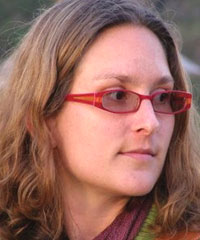Hanna Zagefka

Royal Holloway University of London, UK
What does your research focus on?
My research focuses on intergroup relations, particularly acculturation and other phenomena affecting ethnic minorities. More recently, I have started to investigate predictors of charitable donations, a line of work I am currently very excited about. I approach this topic from an intergroup perspective — how do group memberships increase or reduce prosociality towards those in need?
What drew you to this line of research? Why is it exciting to you?
I have always been interested in research topics for which I could see a tangible application, and which have the potential to make a real practical difference outside of academia. Research which focuses on deprived ethnic minorities or on disaster victims in poor countries is capable of leading to improvements for some of the weakest members of society. I find such work inherently interesting and worthwhile.
Who were/are your mentors or psychological influences?
My biggest influence by far has been Rupert Brown, my doctoral advisor and now collaborator and friend, who himself was a student of Henri Tajfel’s. I have also benefited from the advice of Amelie Mummendey — it’s good to have female role models! Roberto Gonzalez is also a constant influence on my thinking; I’m grateful for our productive and enjoyable collaboration.
To what do you attribute your success in the science?
Doing something which intrinsically motivates me; and having the good fortune to collaborate with others who make our joint research efforts not only scientifically richer but also more fun.
What’s your future research agenda?
I would like to expand my exploration of predictors of charitable giving. Identifying psychological processes which encourage or prevent donors from helping victims such as those of Hurricane Katrina, the 2004 Asian Tsunami or the many catastrophic events that have taken place globally since then is something I am itching to continue.
Any advice for even younger psychological scientists? What would you tell someone just now entering graduate school or getting their PhD?
An incredible amount of effort and work goes into every publication, mostly made possible only due to internal drive and self-discipline. So, only pursue the academic path if you truly love the work!
What publication are you most proud of or feel has been most important to your career?
This might be a recency effect, but I’m going to plunge for my most recent paper on donations to disaster victims, which recently appeared in the European Journal of Social Psychology. The media and third sector interest in this work has exceeded my wildest expectations. This confirms to me that this line of work can make a real practical difference, and edges me on to continue along this path.





APS regularly opens certain online articles for discussion on our website. Effective February 2021, you must be a logged-in APS member to post comments. By posting a comment, you agree to our Community Guidelines and the display of your profile information, including your name and affiliation. Any opinions, findings, conclusions, or recommendations present in article comments are those of the writers and do not necessarily reflect the views of APS or the article’s author. For more information, please see our Community Guidelines.
Please login with your APS account to comment.